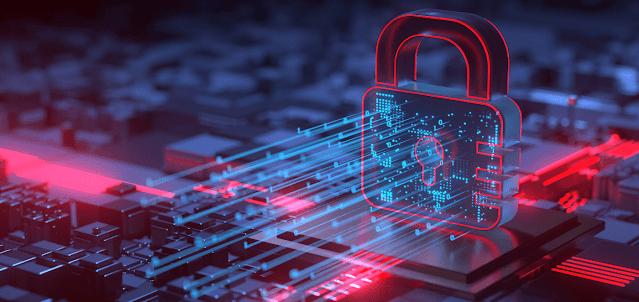SaaS Security: Ensuring Data Protection in ERP Solutions in UAE
In the era of digital transformation, where data serves as the lifeblood of organizations, ensuring robust security measures is imperative.
For businesses in the United Arab Emirates (UAE) leveraging Software as a Service (SaaS) based Enterprise Resource Planning (ERP) solutions, the focus on data protection takes center stage. Let's delve into the critical aspects of SaaS security and how it ensures data protection in ERP solutions within the unique context of the UAE.
1.
Compliance with Local Regulations:
The UAE places a premium on data protection and privacy, enacting stringent
regulations to safeguard sensitive information. SaaS-based ERP solutions
operating in the country must adhere to these regulations, ensuring that
businesses remain in compliance and avoid legal ramifications. This includes
aligning with data protection laws and guidelines set forth by authorities such
as the Telecommunications And Digital Government Regulatory Authority (TDRA)
and the Dubai Data Law.
2.
Advanced Encryption Protocols:
SaaS ERP solutions in the UAE employ cutting-edge encryption protocols to
shield data from unauthorized access. Data transmitted between the user and the
cloud is encrypted, ensuring that even if intercepted, it remains
indecipherable. This robust encryption strategy adds an extra layer of
protection, particularly crucial when dealing with sensitive business
information.
3.
Secure Cloud Infrastructure:
The cloud infrastructure supporting SaaS ERP solutions is fortified with
comprehensive security measures. This includes firewalls, intrusion detection
systems, and continuous monitoring to identify and thwart potential threats.
Providers often invest in top-tier data centers with industry-leading security
certifications to guarantee the integrity and resilience of the cloud
environment.
4.
Multi-Factor Authentication (MFA):
SaaS ERP solutions prioritize access control through Multi-Factor
Authentication (MFA). Users in the UAE are required to authenticate their
identity through multiple verification methods, such as passwords, biometrics,
or one-time codes. This significantly reduces the risk of unauthorized access,
ensuring that only authenticated users can interact with sensitive ERP data.
5.
Regular Security Audits and Updates:
To stay ahead of evolving cyber threats, SaaS ERP providers in the UAE conduct
regular security audits. These assessments identify vulnerabilities and areas
of improvement, allowing for prompt remediation. Additionally, automatic
updates ensure that the ERP solution is equipped with the latest security
patches, safeguarding businesses against emerging threats.
6.
Data Residency Options: Recognizing
the importance of data sovereignty, SaaS ERP providers offer data residency
options to businesses in the UAE. This allows organizations to store their data
within the country, aligning with regulatory requirements and providing an
added layer of control over where their sensitive information resides.
In conclusion, SaaS security is paramount in ensuring data protection for businesses in the UAE leveraging ERP solutions. By addressing local regulations, implementing advanced encryption, securing cloud infrastructure, enforcing multi-factor authentication, conducting regular audits, and offering data residency options, SaaS ERP providers in the UAE like Frontline Information Technology contribute to a secure and resilient digital environment. As businesses continue to embrace the benefits of SaaS-based ERP solutions, the commitment to data protection remains steadfast, fortifying the foundation of the UAE's digital future. If you need to know more about Horizon EBS, you can write to us at sales@fit.ae or ring us at +971 4 353 3727.




Comments
Post a Comment